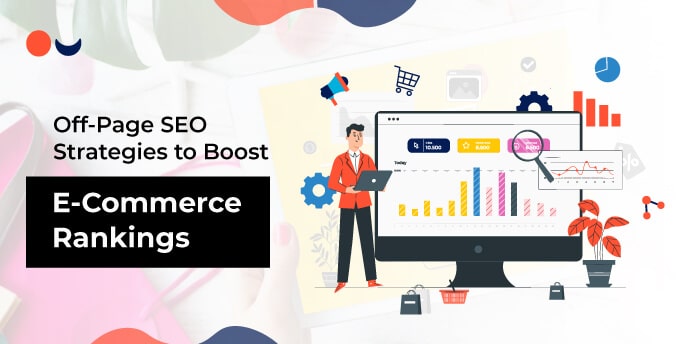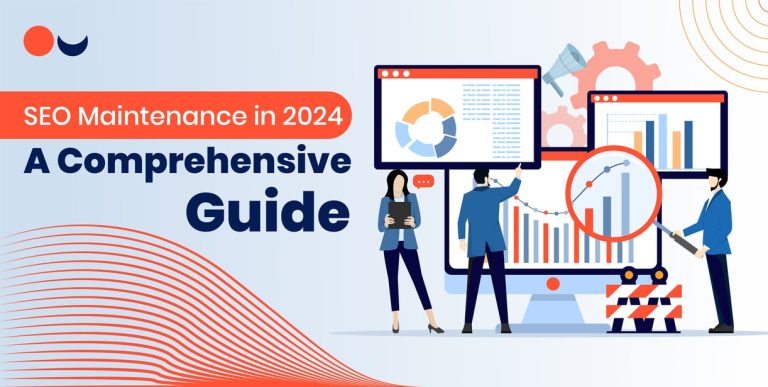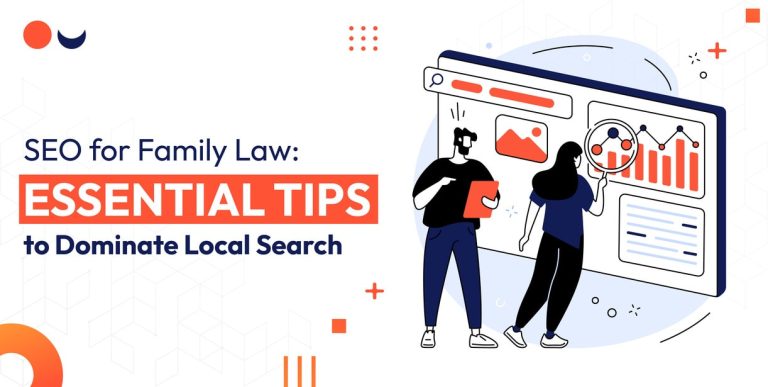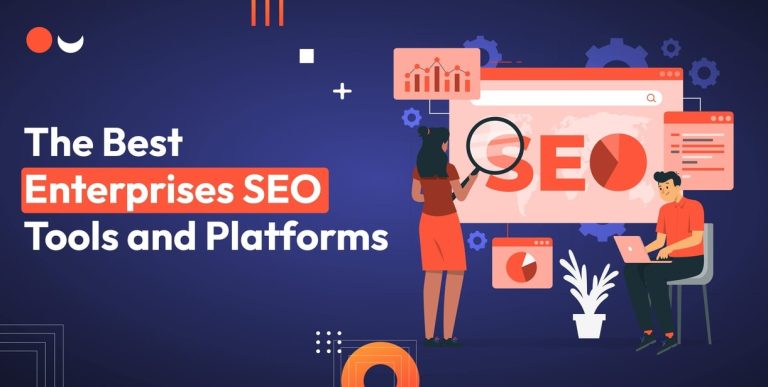A strong online presence is critical for success in the realm of e-commerce. With millions of online retailers competing for visibility, implementing efficient SEO tactics to increase your e-commerce results is critical. While on-page optimization is crucial, Off-Page SEO Strategies for E-commerce are as important in increasing the exposure of your website and driving organic traffic. In this blog post, we will look at off-page SEO tactics specifically designed for e-commerce websites that can help you improve your search engine rankings.
What is Off-Page SEO?
Off-page SEO is an important facet of search engine optimization that goes beyond optimizing things on your website. It entails various techniques and activities conducted outside of your website to improve its exposure, authority, and reputation in search engine results pages (SERPs). While on-page SEO focuses on elements such as keyword optimization, Meta tags, and website structure, off-page SEO supplements these efforts by constructing external signals demonstrating your website’s relevance, legitimacy, and popularity.
Link building is a fundamental off-page SEO practice. Backlinks, or inbound links, are links to your website from other websites. Search engines view backlinks as votes of confidence and indicators of the quality and utility of your material. Search engines view links from reliable and authoritative websites as good endorsements, which can significantly impact your search engine rankings.
Acquiring high-quality backlinks from relevant and trustworthy sources is essential for effective link-building. Prioritizing natural and organic backlinks over spammy or black hat approaches is critical. Off-Page SEO is to create compelling and shareable content that naturally attracts links, guest posting on authoritative websites in your industry, accomplishing out to influencers or industry experts for collaborations or endorsements, and utilizing social media platforms to promote your content and gain exposure are all ways to build a strong network of backlinks.
In conclusion, off-page SEO is critical for optimizing your e-commerce website for search engines as well as raising its visibility and authority. You may improve your ecommerce rankings, generate organic visitors, and establish a strong online presence by employing effective off-page SEO methods such as link building, social media engagement, online reputation management, influencer marketing, and content marketing. These methods complement on-page SEO to form a holistic SEO plan that propels your e-commerce business to success.
What is the difference between On-Page SEO and Off-Page SEO?
Why is Off-Page SEO Important?
Off-page SEO is critical for a variety of reasons. Off-page SEO is significant for the following reasons:
1. Improved Search Engine Rankings:
Off-page SEO is crucial in deciding your website’s search engine rankings. When determining the authority and relevance of a website, search engines such as Google analyze external signals such as backlinks, social media mentions, and online reputation. By employing efficient off-page SEO methods, you may boost your chances of ranking higher in search engine results pages (SERPs) and attracting more organic visitors to your e-commerce website.
2. Increased Website Visibility:
Off-page SEO tactics improve your e-commerce website’s visibility. Obtaining high-quality backlinks from reliable websites increases referral traffic and the likelihood of your website being noticed by search engine crawlers. The more visible your website is across many platforms, the more likely it is to attract potential clients and drive organic traffic.
3. Enhanced Online Reputation:
Another reason why Off-Page SEO is Important, Off-page SEO includes maintaining online reviews, interacting with customers on social media, and partnering with influencers. These initiatives help your e-commerce brand develop a strong internet reputation. A solid reputation builds trust with prospective customers and influences their purchasing decisions. Positive online reviews, social media interaction, and influencer endorsements can help your brand stand out from the crowd and contribute to long-term success.
4. Increased Brand Awareness:
Off-page SEO tactics like social media participation and influencer marketing efficiently raise brand recognition. You may broaden your reach and expose your e-commerce company to a larger audience by actively participating in social media conversations, sharing good information, and partnering with industry influencers. Increased brand awareness can result in more website visits, increased consumer engagement, and, eventually, more conversions.
5. Quality Backlinks and Referral Traffic:
Off-page SEO relies heavily on the creation of high-quality backlinks. When credible websites link back to your e-commerce site, it conveys trustworthiness to search engines while also driving referral traffic. Backlinks from authoritative sources can attract highly relevant visitors who are more likely to become buyers. Backlink quality and relevance are more important than the number; therefore, focusing on getting connections from trustworthy and industry-relevant websites is critical.
6. Long-Term SEO Benefits:
Off-page SEO activities can assist your e-commerce website in the long run. Building excellent backlinks and developing a positive internet reputation, as opposed to other on-page optimization approaches that may necessitate frequent updates and tweaks, can have a long-term influence. As your website’s authority and recognition grow, it becomes more competitive in search engine results, resulting in increased organic traffic and conversions.
Off-page SEO is critical for e-commerce websites since it improves search engine results, promotes website visibility, improves online reputation, develops brand recognition, drives referral traffic, and delivers long-term SEO benefits. You can build your e-commerce brand as a trusted authority, attract targeted traffic, and ultimately drive more sales and revenue by employing effective off-page SEO methods.
Off-Page SEO Techniques for E-Commerce Websites
A solid online presence is critical for success in the realm of e-commerce. With millions of online retailers competing for visibility, implementing efficient SEO tactics to increase your e-commerce results is critical. While on-page optimization is crucial, off-page SEO strategies are as important in increasing the exposure of your website and driving organic traffic. In this blog post, we will look at the Off-Page SEO Techniques for E-Commerce Websites specifically designed to help you improve your search engine rankings.
1. Link Building for eCommerce SEO
Link building For eCommerce SEO is a critical off-page SEO approach that entails obtaining high-quality backlinks from authoritative and relevant domains. When other respectable websites link to your ecommerce store, search engines interpret it as a vote of confidence and reliability, which boosts your rankings. Create intriguing and shareable content, guest post on relevant blogs, reach out to influencers in your niche and use social media channels to promote your material to get natural and organic backlinks.
2. Social Media Engagement
In today’s digital world, social networking is critical to off-page SEO. Engaging with your target audience on social media platforms such as Facebook, Instagram, Twitter, and LinkedIn increases brand awareness and creates vital backlinks and social signals. To expand your brand’s reach and increase visitors to your e-commerce website, share compelling content, encourage social sharing, participate in relevant debates, and cooperate with influencers.
3. Online Reputation Management
E-commerce businesses must have a positive online reputation. Online reviews and ratings heavily influence consumer purchasing decisions. Actively manage your online reputation by encouraging satisfied customers to submit reviews, swiftly and professionally responding to feedback, and addressing any bad comments or complaints. A positive internet reputation will not only increase the legitimacy of your brand but will also help your search engine rankings.
4. Influencer Marketing
Using the influence of influential individuals in your field to boost your e-commerce rankings can have a major impact. Collaboration with key influencers in your niche can help enhance brand visibility, drive traffic, and produce valuable backlinks. Identify influencers with a large following who are similar to your target demographic. Engage them in product reviews, sponsored content, or influencer campaigns to reach a larger audience and increase your website’s authority.
5. Content Marketing and Guest Blogging
Off-page SEO requires the creation of high-quality, informative content. Create a content marketing strategy to produce valuable material for your target audience. To position oneself as an industry expert, share insightful blog pieces, videos, infographics, and product manuals. Furthermore, guest writing on reputable websites in your niche can help you acquire exposure, create backlinks, and increase your website’s authority.
Finally, e-commerce businesses that want to increase their search engine results and drive organic visitors must employ Off-Page SEO Strategies for E-commerce. You may enhance your e-commerce rankings and achieve long-term success in the highly competitive online marketplace by using effective link-building tactics, engaging with your audience on social media, managing your online reputation, utilizing influencers, and providing meaningful content. Remember that it is a constant process, and staying up to speed with the latest off-page SEO trends and best practices is critical for preserving the visibility and competitiveness of your e-commerce website.
Benefits of e-Commerce SEO
Implementing off-page SEO strategies for your e-Commerce website can yield numerous benefits, including:
1. Improved Search Engine Rankings:
One of the critical purposes of off-page SEO is to improve your website’s ranks. Your e-commerce website increases awareness to potential clients actively searching for products or services connected to your business when ranking higher in search engine results pages (SERPs).
Off-page SEO strategies such as link building, social media involvement, and influencer marketing can help search engines judge the authority and relevancy of your website. As a result, your website is more likely to appear on the first page of search results, increasing organic traffic and click-through rates.
2. Increased Organic Traffic:
Off-page SEO strategies are critical for attracting targeted organic traffic to your e-commerce website. Off-page optimization for your website attracts users who are genuinely interested in your products or services. For example, obtaining high-quality backlinks from relevant and authoritative websites might boost referral traffic from those sources.
Engaging with your target audience on social media platforms and cooperating with industry influencers can similarly expose your brand to their following, improving the likelihood of drawing interested visitors to your website. By increasing organic traffic to your e-commerce site, you increase your chances of converting those visitors into consumers, increasing your sales and revenue.
3. Enhanced Brand Awareness:
Off-page SEO tactics like social media engagement and influencer marketing significantly impact brand recognition. You may expose your e-commerce company to a larger audience by actively participating in social media conversations, contributing quality content, and developing a strong social media presence.
This increased visibility and involvement can assist potential customers in becoming acquainted with your brand and products, hence enhancing brand recall and recognition. Similarly, working with influencers with a large following in your field allows you to utilize their audience and improve your brand’s reach. People are more inclined to evaluate your items or services when making purchasing decisions as they become more aware of your brand.
4. Higher Credibility and Authority:
Off-page SEO initiatives help to increase the credibility and authority of your e-commerce website in your sector. Obtaining high-quality backlinks from reputable and relevant websites tells search engines that your website is regarded and valued by other authoritative sources. This can boost your website’s ranks and increase its perceived credibility.
Furthermore, developing confidence with potential clients requires keeping a positive online reputation through effective online reputation management. Positive online reviews, timely responses to comments, and addressing customer problems or complaints indicate your dedication to customer satisfaction and increase the trustworthiness of your business. Engaging with influencers that have built authority in your sector can also improve the management of your website by association.
Off-page SEO helps e-commerce companies improve their search engine ranks, drive targeted organic traffic, raise brand recognition, and establish credibility and authority. You may optimize your website’s exposure, attract the correct audience, and drive more sales and revenue by employing successful off-page SEO strategies such as link building, social media engagement, influencer marketing, and online reputation management. These advantages are beneficial in the short term and contribute to the long-term success and expansion of your e-commerce firm.
Conclusion
Finally, off-page SEO methods are critical for e-commerce companies that want to boost their search engine results and drive organic traffic. You may enhance your e-commerce rankings and achieve long-term success in the highly competitive online marketplace by employing effective link-building strategies, connecting with your audience on social media, maintaining your online reputation, utilizing influencers, and providing meaningful content.
Remember that it is a constant process, and staying up to speed with the latest off-page SEO trends and best practices is critical for preserving the visibility and competitiveness of your e-commerce website. You may optimize your e-commerce website for search engines, generate organic visitors, and produce more conversions and income by continuously executing these methods and assessing their success. Connect with marketing blink and Start using these off-page SEO tactics immediately and watch your e-commerce rankings skyrocket!







